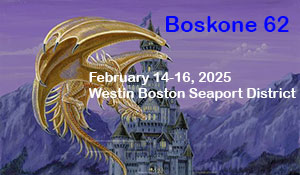Orphan’s Destiny
by Robert Buettner
Aspect, 2005, ISBN 0-446-61430-0
Jason Wander, having survived the Slug War in Orphanage and risen, to a frightening degree (especially to himself) simply by surviving, to the rank of general and commanding officer of the Ganymede Expeditionary Force, is relieved when a new ship arrives to take him and his seven hundred surviving soldiers home to Earth. Although he has spent the months between the defeat of the Slugs and the arrival of the Excalibur taking every relevant correspondence course that he can, including a lot of military history, he knows he’s not remotely qualified to be a general, but harbors strong hopes that he’s at least worked his way up to lieutenant.
After a journey home that proves he doesn’t have the political skills and officer training to be a general in the presence of other senior officers who know what they’re doing, he’s appalled to discover that he’s going to remain a general anyway, because the government needs a war hero as a pr tool. And as the general who defeated the Slugs and saved Earth, he’s it. There’s no one else who can fill that role. It’s especially difficult for Jason because he believes that current US government policy is wrong; the new administration is spending funds on economic and infrastructure reconstruction that Jason, not convinced that the Slugs won’t be back, believes need to be spent on building a better defense. His dilemma gets worse once he’s made a few tours in his unwanted new capacity: while he’s more convinced than ever that every penny needs to be spent on defense, it’s also clear to him that, after the years of pounding by the Slugs, every penny also needs to be spent on reconstruction. The government is engaged in the thankless and probably impossible task of trying to divide the available resources to do both at least adequately.
It simplifies things, in a quite unwelcome way, when the Slugs do attack again, this time from a spaceship carrying the bulk of their invasion force. Jason is at least confronted with a problem he understands somewhat better, even if dealing with that problem involves lying, cheating, stealing, and disobeying orders. And of course, persuading some of his surviving friends and subordinates from the Ganymede expedition to do the same.
This book is in many ways in the tradition of Starship Troopers and The Forever War, but Heinlein and Haldeman were each in their different ways angry when they wrote their books celebrating the infantry. I think Buettner is mostly having fun here (and certainly the reader is), while still celebrating the common foot soldier and trying not to oversimplify and cast Jason’s human obstacles to defending Earth as villains, or even necessarily completely wrong.
Very enjoyable.







 Donate to NESFA
Donate to NESFA